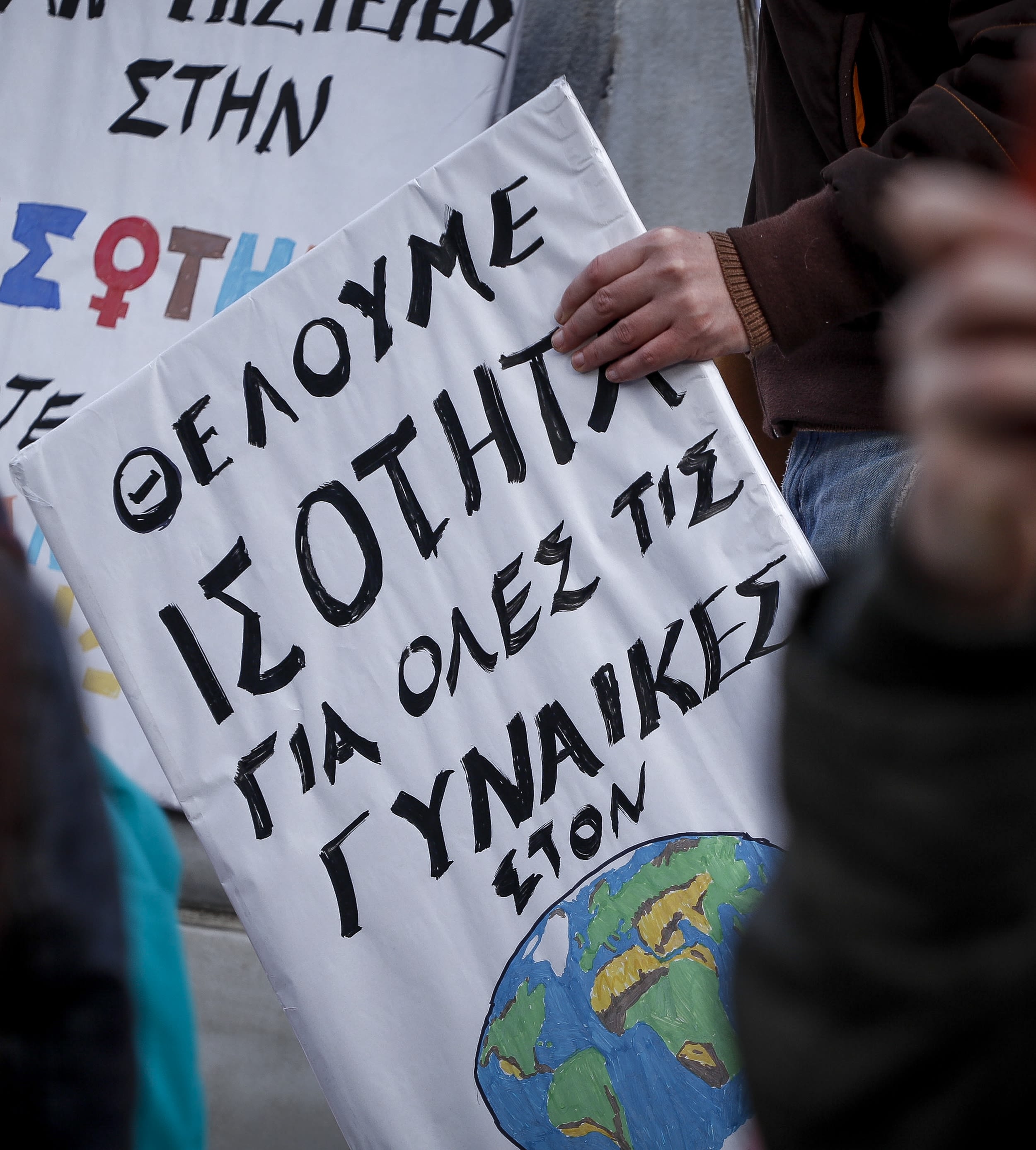40 Years in the European Union
Greek Europe and European Greece, through the eyes of its people.
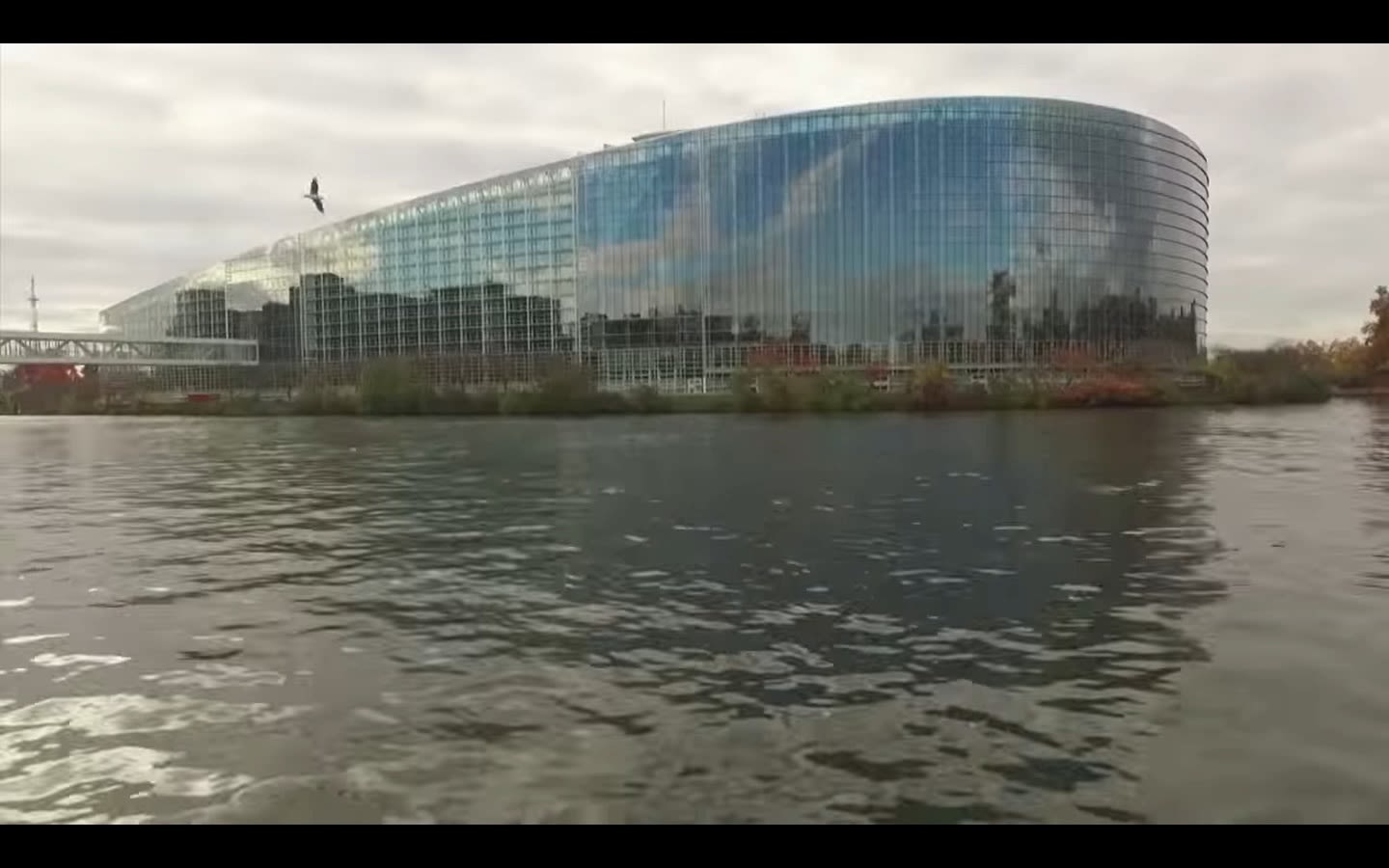
One of the thoughts that we all had to come to terms with over the past months, was that there were going to be days spent entirely at home. This was particularly hard to do, especially when knowing that with an ID card and a suitcase in hand we could, theoretically, find ourselves in London, Berlin, Paris or Lisbon within a matter of hours.
These were the thoughts going through Kosti's mind as he was coming out of the water. It was February, but the morning sun of Athens warmed his face and mind. Ms Eftychia deposited a piece of plastic wrapping in a blue bin at the edge of the beach and then headed home with a soft smile on her face. She lived a few blocks away and after 3 decades of winter swimming she had in recent years started coming to Flisvos.
Kostis looked at his phone screen, He laughed wholeheartedly and realised he hadn't felt like that for days. Ingrid was getting married and in a few months she would be giving birth to her first child with Juan. Kostis had met both of them back in 2010 when on an Erasmus exchange in Lund and Ingrid had become his best friend. Juan lived in Sweden and the two of them ended up a couple. He sorely missed those moments, just as he missed travelling, but he was confident that he would soon be able to do all of that again.
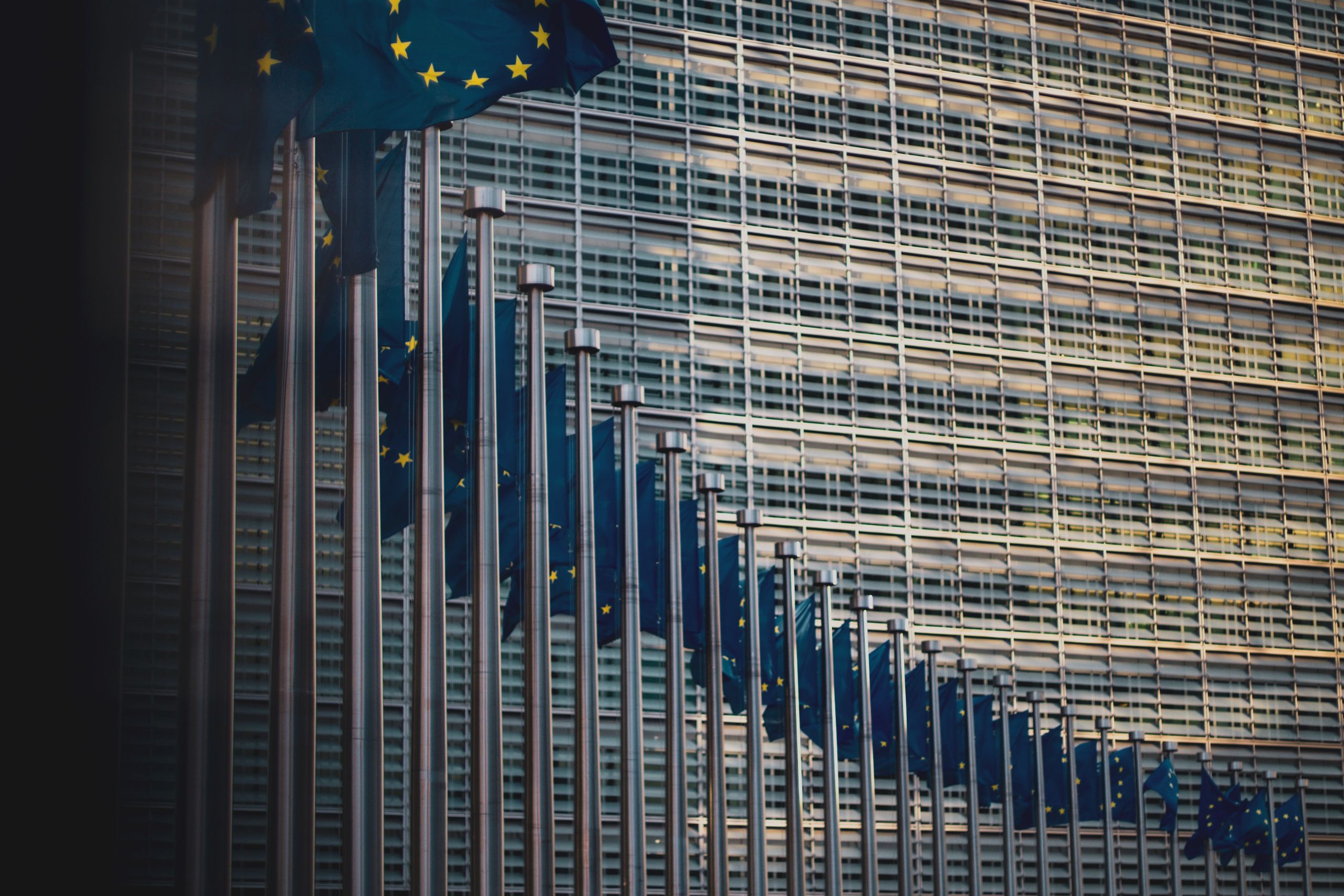
He locked his screen and decided to video call Ingrid that evening. He would soon be changing into his suit, jumping into his car and heading to the offices of the multinational where he was employed, for yet another meeting with the head office in Amsterdam. Broadband, new technologies, 5G, the fourth industrial revolution, the new internet, personal data - all of these concepts had become part of his daily life.
Kostis feels that he is just a representative example of a of European citizen. He happens to be Greek, but he could be Spanish, Polish or Belgian. Life saw it fit for him to be born in this historic corner of Europe, on its eastern border, at the crossroad of nations, whose relationship with the EU is turning 40 years old. Unlike the relationship between Ingrid and Juan, this relationship has not only been about the good times. It has been a treacherous voyage, it has reached dead ends against fences and water routes, but has helped build conditions that will ensure the modern identity and continued existence of this ancient country.
On the occasion of Greece's fortieth anniversary in the EU, NEWS 24/7 has opened the file on this relationship, in an attempt to highlight the process of integration along three main axes that largely define our quality of life: The environment, consumer rights and new technologies and of course the Erasmus programme.
In this spirit, we are going to go for a winter swim with Kostis at a beach located almost in the centre of the urban fabric, we shall find out how clean the atmosphere in Athens actually is, we will learn whether we are in danger from 5G technology and what the Single Digital Gateway is and also analyse the core of European interculturalism as implemented through the Erasmus programme.
Erasmus creates European citizens

Since the end of the 1960s, Italian Professor of Educational Science Sofia Corradi, had been trying to convince the deans of European universities to establish an international exchange programme for students.
Her vision was to come true 20 years later, when on 15 June 1987, the Council of European Communities, decided to set up the European Community Action Plan on Student Mobility, known as Erasmus. Sofia Corradi will be remembered in history as "Mama Erasmus" and her "offspring" is the EU's most long-lasting and successful programme.
Since the first ever Erasmus student exchange until today, more than 10,000,000 young people have moved around European and world cities for studies or work experience, whilst since 2013 all EU education, training, youth and sport programmes, come under the Erasmus umbrella.
Erasmus and Greece
In Greece, student mobility numbers have risen dramatically since "the distant year 1987 and particularly during the last two programme periods, Erasmus LLP and Erasmus+ from 2007 to 2021", explains Ms. Aggeliki Kardiakaftiti, Head of the Department of International Relations and European Union at Panteion University.
She believes that this is because students can sense from early on, the prevailing anthropocentric rationale, scientific and cultural, ingrained in the programme, via mobility, academic osmosis and the instigation of human encounters, collaboration and interpersonal communication at the desks of European universities-corporations.

The vast majority of people approached by NEWS 24/7 and asked about their Erasmus experience, spoke of a "broadening of the spirit" which helped them cope with the living conditions in foreign countries, with finding jobs and communicating with people from various cultural backgrounds. Ms. Kardiakaftiti also makes reference to this fact with regard to the Panteio University students. "Upon their return, one could instantly discern the change in their approach to things, their academic thought process, their attitudes and behaviours, in their overall daily lives. Namely, an academic and simultaneously cultural shift towards scientific deference, tolerance of diversity, social stability, consent and academic synergy".
The economic crisis that hit our country during the last decade, not only did not deter Greek students from participating in the programme, but in fact, was seen as an incentive to create the circumstances that would allow them to escape the unfavourable conditions being established. "The Erasmus Programme provides adequate funding for studies and work experience, whilst during the recession there was additional, symbolic, financial support for students from low-income backgrounds and exceptionally generous funding for disabled students, which is still in place today. Therefore it can be said, that during the economic crisis, following the initial shock felt by everyone, the vast majority of Greek families, at least from what we can tell from our University, supported their children's Erasmus choice, as a means of ensuring a better future for them”.
Whether however Erasmus is a programme accessible to all social classes, is a frequently recurring issue. In any case, one of the fundamental conditions of Erasmus+ is to ensure the implementation of the programme's principles which are to eradicate social and religious discrimination, financial and racial exclusion, gender inequality and lack of access to equal opportunities. Broadening access to the programme was one of the main reasons why, last December, the European Parliament approved the increase of funds to be allocated to Erasmus+ for the period 2021-2027, to over 26 billion euro, compared to 14.7 billion which was the corresponding amount for 2014-2020.
Contribution to employability
“Boosting the level of skills and capabilities with regard to the job market and participants' contribution to social cohesion" are among the declared objectives of Erasmus+.
According to the Commission Impact Study, 72% of respondents reported that participating in a mobility program had significant benefits in the job search process. Also, according to the same data, it appears that finding employment is easier for people who have participated in a programme, while the vast majority are more receptive to the idea of working abroad.

"The Erasmus+ Programme for Education or Traineeships invariably has a favourable impact on the connection between students and society and the job market since it complements their education by improving their employability as business executives. The above, combined with the occasional update of the studies programmes, mean that the competitiveness of the degrees held by graduates is capable of offering an edge when seeking to further their studies or find employment", mentions Aggeliki Kardiakaftiti.
Stefania, who took part in the programme in 2013, taking classes in Poitiers, France and who now lives and works there, seconds this opinion. "I believe it is much easier for someone to find a job in foreign market, if they have been through Erasmus. "It is a way of seeing what life is like abroad, of experiencing a different culture".
“The programme is by now widely known and Erasmus has become synonymous to a specific mind set. It represents a type of person who travels, is open minded, embraces a broad range of ideas and who is adaptable. So definitely, at a professional level, it has been a huge help and made a great difference", says Theano who took part in the programme in 2011 in Sweden and currently lives in Paris.
A European Identity
Erasmus also appears to contribute significantly towards European unification . As many of the participants are quick to point out, being on the programme and in contact with people from different European countries, helps to get a better grasp on the EU and its institutions and makes young people feel part of a broader culture that goes beyond national borders.
"The Erasmus Program strives to achieve a single European academic and cultural consciousness, rooted in common European values and our common European identity, respecting diversity, engaging in innovative and responsible research and action open to all, through academic dialogue, consensus, and respect for the exponent of opposite views ", says Angeliki Kardiakaftiti and the data shows that these aspirations are achieved.
The rate of 9% of respondents who stated they do not feel as if they share a common European identity, drops to 6% after the programme has been concluded. On the contrary, the percentage of proponents of a single European consciousness increases from 20% to 26%.
"I believe that what Erasmus offers is a unique spiritual opening allowing you to connect to what is called European consciousness ", mentions Irini, who went to Paris in 2004 on the programme and still lives there with her family today.
Katerina took part in 2006 in Marseilles. Today she lives in London. "Programmes like Erasmus are the embodiment of the European vision. You don't just live in Greece, or Spain, you live in Europe. You can get around and live your life comfortably, without feeling like an outsider. In my opinion Erasmus contributes towards acquiring a European identity".
Towards a greener future
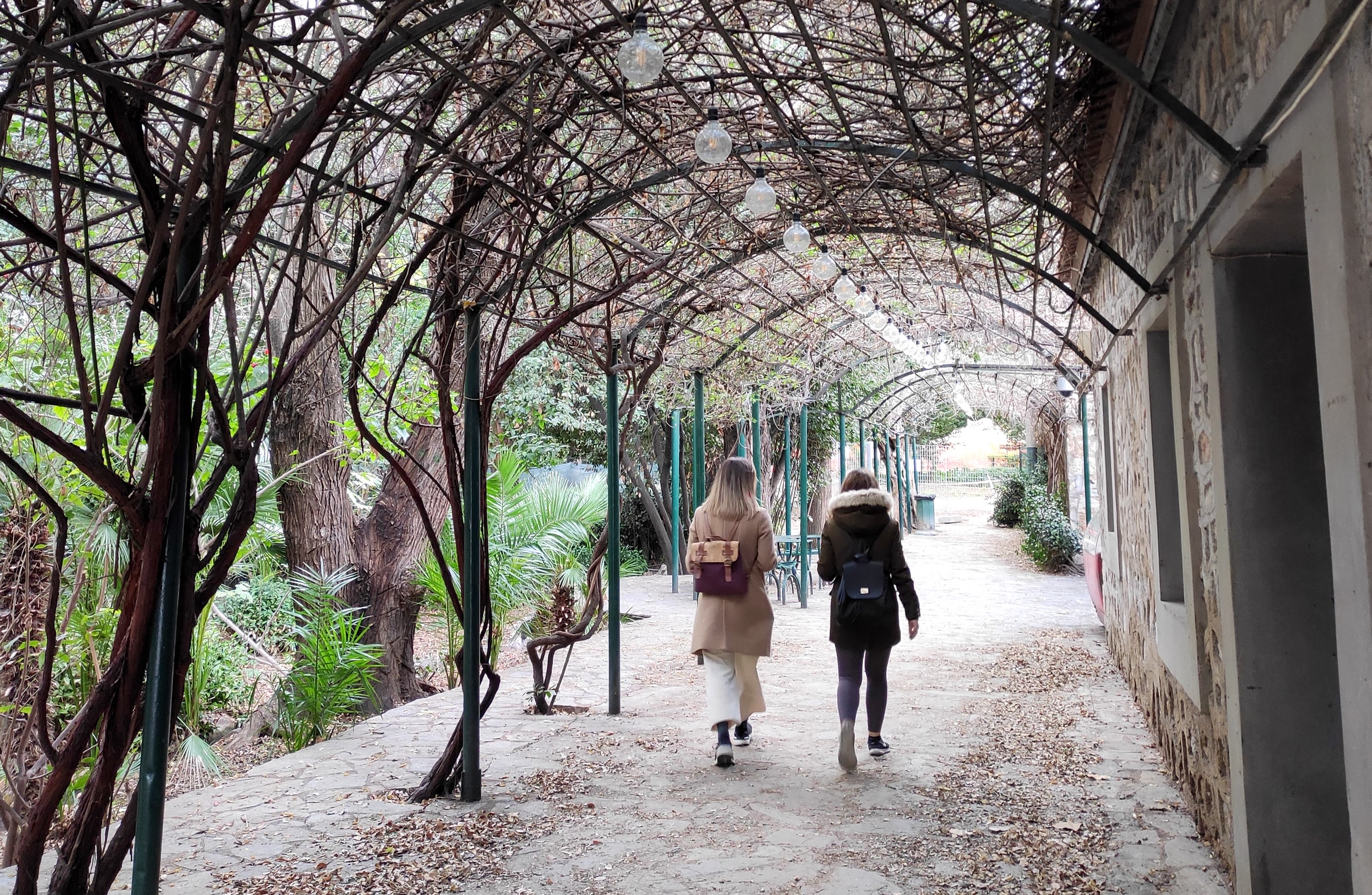
A winter swimmer finds an escape outlet in a period of confinement and in places where others see nothing but concrete. A dip in clear waters, in a city with less smog and an Attica beach free of plastic. Recycling has become part of his everyday life and awareness, it is being promoted by Municipal actions and encouraged by volunteer work by citizens and organisations who care about their city. 2021 marks a new page for humanity, but is also a year when climate change holds a predetermined and prominent position in the EU agenda.
The past decade, despite the unfavourable events in Greece and elsewhere (economic crisis, pandemic), has also brought about a tangible improvement in the atmosphere of Attica skies. This can be documented from a scientific point of view, but also from the personal experience of the people we have spoken too.
A revitalizing dip in the city centre
For six years now, winter swimming has provided Kostis with an escape from the hectic pace of the noisy capital. The choice of a healthier lifestyle and the need for a few carefree moments of well-being, were met by a hobby that become a daily routine in a city with its own hidden gems. Because at last, Athens can boast clean beaches, located within the urban fabric, that have been awarded blue flags, something unthinkable a few years ago.
How did you decide to become a winter swimmer? Was there something or someone that gave you the urge?
Actually, becoming a winter swimmer was a decision I took on my own, in a rather impulsive way. I should also add that it was a somewhat unexpected decision since I have never been good at dealing with the cold. It was six years ago when, thinking of doing something different, I decided to keep going to the beach religiously, every Saturday or Sunday, no matter how cold it was. I even surprised myself with my discipline and since then I have been swimming every winter.
Have you observed any physical differences compared to before? In your overall health?
I have actually observed a great difference in my health. I rarely get sick now, not even a common cold or a sore throat. It is definitely a fact that winter swimming and exposure to the cold boosts the immune systems and makes us more resilient. The most impressive thing in my case however is that ever since taking up winter swimming I got rid of an asthmatic cough that used to affect me every year. I had tried various medicinal treatments but to no avail and in the end the solution turned out to be winter swimming.
What would you advise someone looking to take up winter swimming? Should they take it one step at a time?
Of course it is very important for someone taking up winter swimming to do so carefully and step by step. It is simply a matter of not giving up swimming at the end of the summer season and of keeping it up, without breaks, throughout the winter. It is also important, during the months when the sea is at its coldest, (from January to March) to enter the sea gradually and to make sure that people who belong in more vulnerable groups have had the necessary heart tests.
How significant is the fact that Attica's "nearby" beaches are now clean and some have been awarded blue-flag status?
It is so important that there are a number of nearby beaches in Attica that are clean and easily accessible. Getting to a beach takes almost no time at all, so a hobby like winter swimming is feasible despite the frantic pace of modern life and the lack of free time. Also the sea is much cleaner in the winter than it is in the summer.
Which beaches would you recommend to someone for winter swimming?
My personal favourite is Akti Vouliagmenis. With an entrance fee of only 2 euro during the winter period, one can take advantage of all the amenities it offers, i.e. bathroom, changing rooms, café, and -most importantly- there is also a lifeguard. It is located in a really pretty area of Attica, Vouliagmeni, so a swim can be preceded or followed by a nice, invigorating walk. And if Vouliagmeni is too far for some, the beaches of Palaio Faliro are also suitable for winter swimming and easily accessible by tram or bus. And for anyone in the mood for a longer excursion I would recommend the beach of Althea in Agia Marina.
What must one keep in mind with regard to the weather?
Well, it is good to keep an eye on the wind. When it is very windy swimmers should not venture too far out. This is especially true in winter when beaches are deserted and often there is no one around to help in the event of danger. Also, during the months when the water is very cold, swimmers should avoid staying in the sea for too long so as to avoid hypothermia. A rule of thumb is to stay in the water for as many minutes as the sea surface temperature, at the most. So, if the sea surface temperature is 15 degrees then one should not stay in the water for more than 15 minutes.
Finally, as to the environment, would you say that Athens is a more human city to live in?
With regard to winter swimming, Athens is definitely a more human city to live in, since it offers clean beaches at a short distance from the centre. Even though Athens lacks green spaces compared to other European capitals, there has been some progress in terms of regenerating spaces such as parks and squares. Of course, the lack of a large park is painfully obvious but let 's hope that this will soon change when the reconstruction of the former airport of Elliniko is completed.

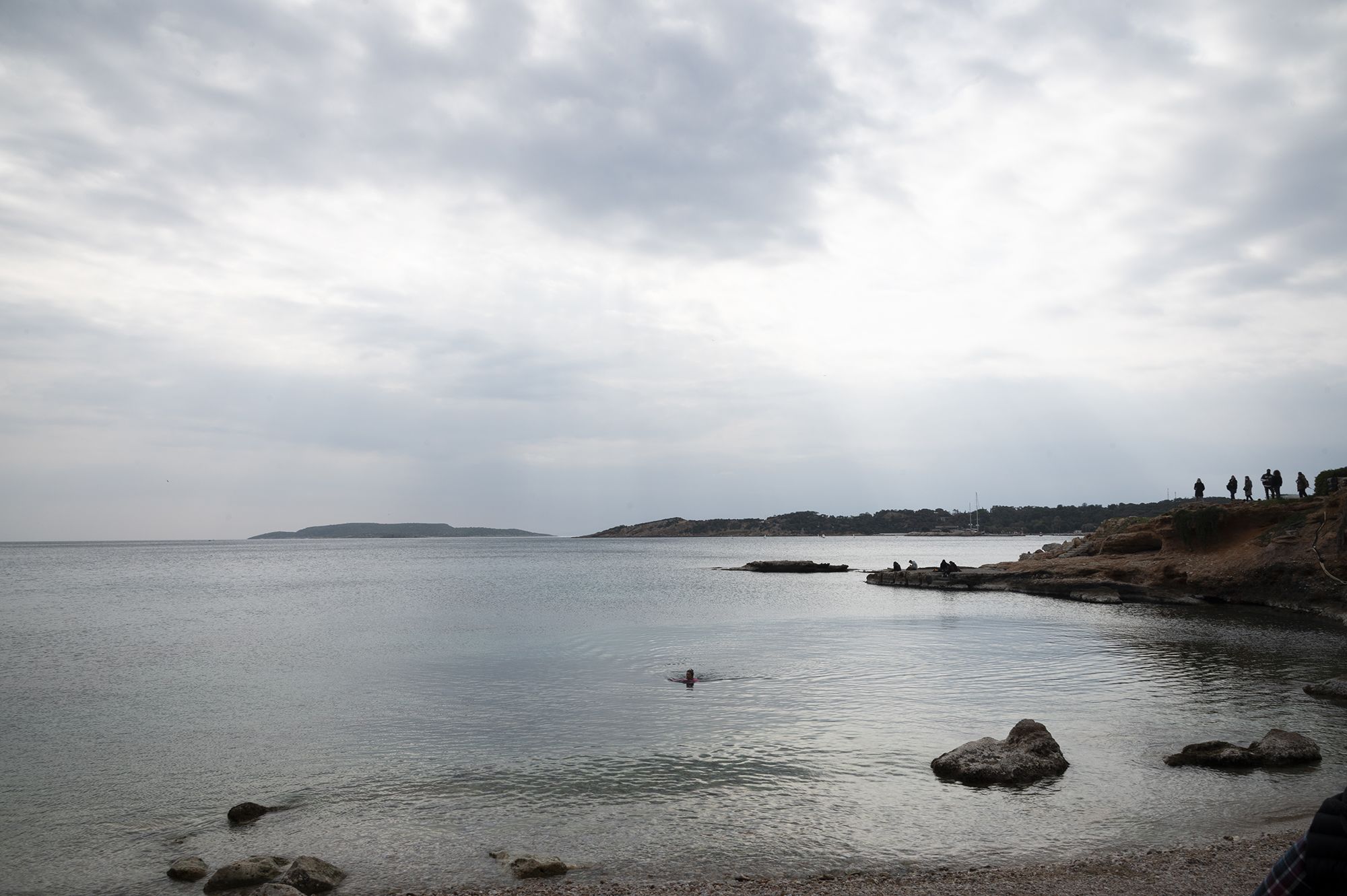
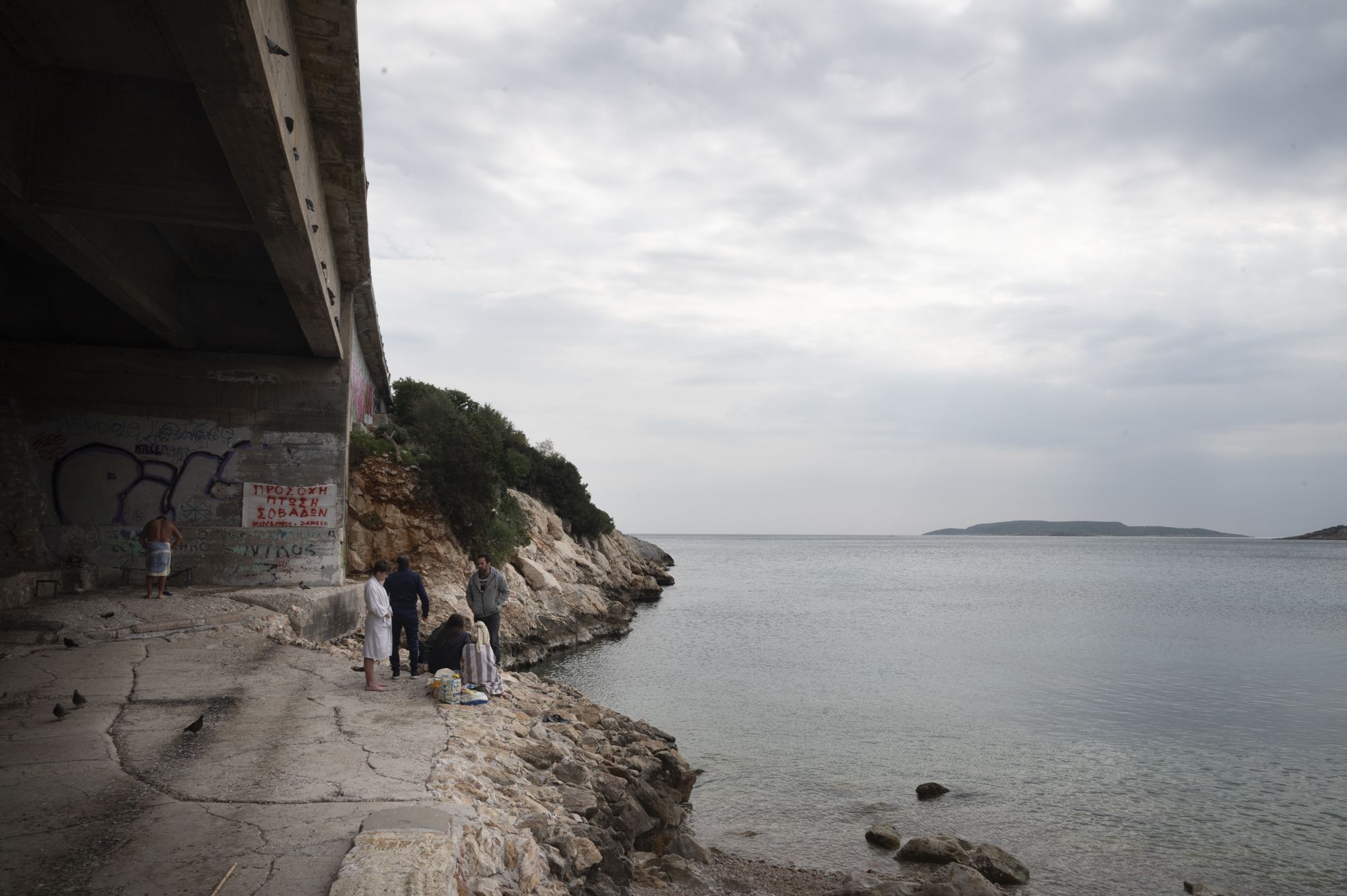
Less smog, more life…
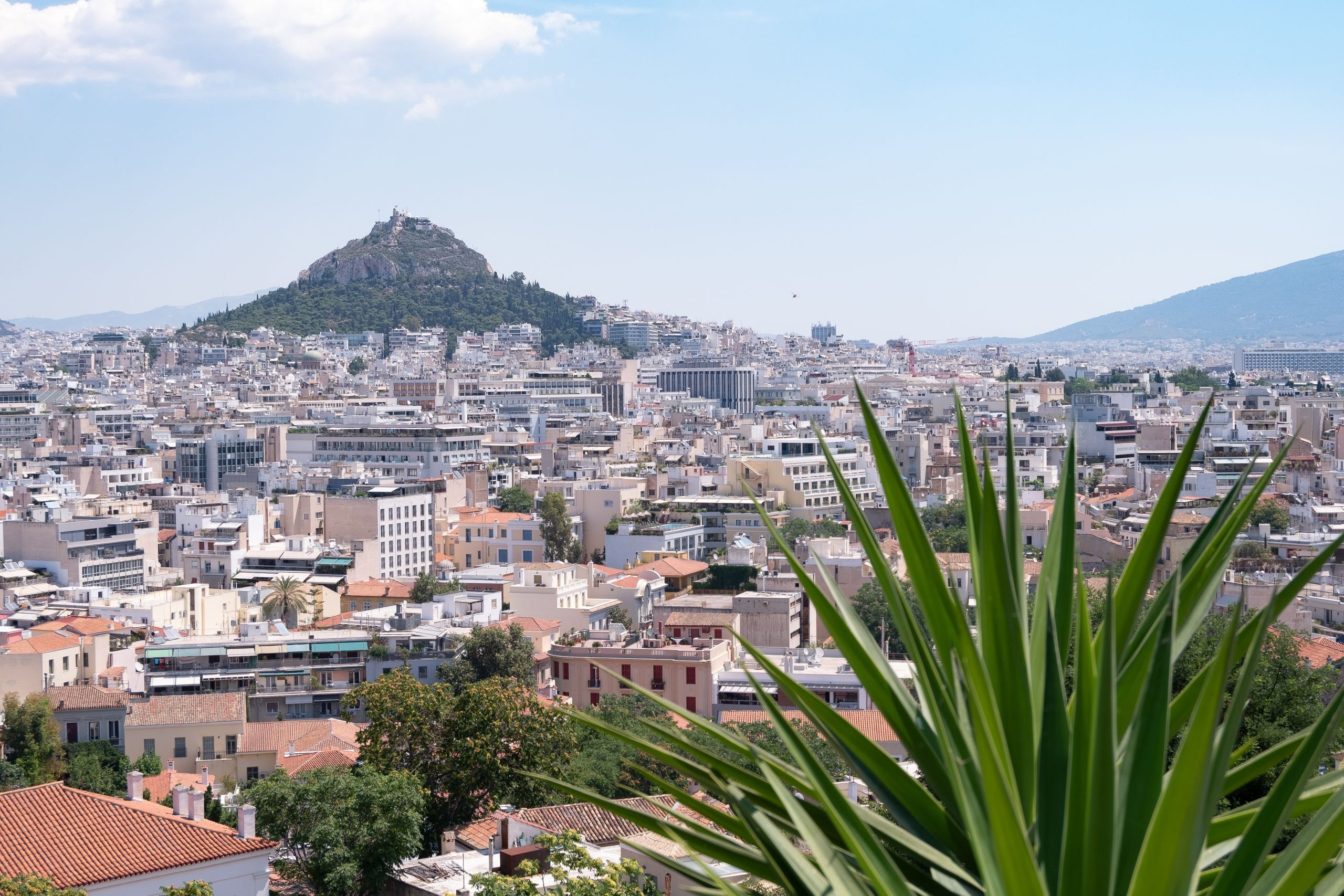
The noticeable reduction of smog in Athens and its impact on our daily lives. How did the "delinquent child" of the EU manage to comply with legislation, what is the role of the EU is and in which areas do we continue to lag behind?
If one were to stand at the highest point in Athens they would see that, even under ideal weather conditions, the view is marred by a dull filter, a brow hue. This is what in simple words we call smog. A timeline would reveal that the levels of this brown hue, and therefore of smog, which blurs the landscape and is seriously detrimental to our health and quality of life, presents significant fluctuations, with the 21st century being a period of significant changes for our country and especially for the capital.
Current European legislation, technological progress and a series of -surprisingly- unfortunate events, such as the economic crisis and the pandemic (lockdown, have led to a significant reduction of smog in our city, a development which is of vital importance, considering how harmful smog is for public health and how many malignant components it contains. It is a known fact that millions of deaths worldwide are caused by conditions related to air pollution.
The progress that has been made and its reflection on our everyday life should be examined primarily from a scientific point of view, in order to comprehend how smog has decreased significantly in the last 15 years, but we should also take a look at the reasons that encouraged and intensified our country's compliance with EU directives, resulting in the improvement of air quality, and therefore on our quality of life.
The measurements and findings of the Institute for Environmental and Sustainable Development Research of the National Observatory of Athens are valuable for drawing important conclusions, while the explanation by Professor Nikos Michalopoulos helps us gain even better insight.
"There is a very wide range of activities and processes related to air and environmental pollution, but also to other areas in which they are involved," says Mr. Michalopoulos, who starts by giving us the definition of this complex problem we call "smog".
"Smog is a series of primary pollutants. The ugly, brown hue we see is a result of gases and compounds such as nitrogen oxides (NOx). Smog however is also made up of other compounds such as sulphur oxides, organic compounds, carbon dioxide, black carbon and other particulate matter. It is a cocktail of many substances originating from various sources, with a variety of different effects on the quality of atmospheric air. Then there is ozone, which is a secondary pollutant."
Mr Michalopoulos, how does atmospheric pollution reflect on our daily lives and how can the reduction of smog improve our quality of life? Other than the obvious health benefits what others does it offer?
Air pollution is a complex environmental and social issue both at a European and global level. It has serious implications on human health and is mainly related to cardiorespiratory diseases and malignancies. In fact there is data which indicates that both indoor and outdoor air pollution is responsible for 7 million premature deaths a year worldwide. At the same time it has a substantial effect on the economy since it increases healthcare costs and is detrimental to productivity.
Moreover, there is series of negative implications on the natural environment. It affects the quality of the water and the earth, crop yields and all ecosystems in general. Another major factor is that there is a close relationship between air pollution and the climate, which has come to be known as climate change.
Have the levels of smog in Athens decreased? What are the current air pollution measurements in the capital?
With regard to primary pollutants there has been a significant decrease, which has been more notable in the 21st century, mainly from 2005 onwards. Though paradoxical, the economic crisis did in a way contribute to this improvement.
The assistance received from the EU in the form of directives was also invaluable, the most significant one being the so called sulphur directive. It imposed a limit on the sulphur content of fuel. The production of energy is the main source of sulphur compounds. So by reducing the percentage of sulphur in the fuels used for energy production a dramatic reduction in sulphur dioxide, that used to be around 90%, has been achieved since the 1990s.
As for other compounds such as nitrogen oxides, associated with car traffic, the reduction began to be noticeable, when catalytic converters were introduced. These are two typical examples of action and effect.
Two major polluters in Greece are the energy production and transport industries which are responsible for more than 50% of pollution. Therefore, most of the interventions leading to the reduction of primary pollutants, were made in those sectors.
The reduction of secondary pollutants such as ozone was not as significant though, since in the past 15-20 years, the reduction is no more than 10-15%. And why is that? Because it is a pollutant formed mainly photochemically in the atmosphere. Supposing that for a while all anthropogenic activities in Greece were halted, we would find that ozone would only be reduced by a mere 10-15%.
A considerable part of the ozone measured in Greece, originates from pollutants reaching us from Europe -the so-called inter border pollution- and it is an exceptionally significant factor.
To put it simply, other countries, where there is no sun, generate the pollutants, which reach our country with its high levels of sunshine and through a very fast chemical procedure, all these pollutants are turned into ozone. So the pollutants generated in other countries become secondary pollutants here. Our neighbours, mainly those who are not EU member-states and are not obliged to do so, shall also have to reduce their emissions.
In what way has the European Union contributed to the reduction of smog in Greece?
One of the long-term goals of the EU is to reduce air pollution and achieve air quality levels that do not adversely affect both human health and the environment. With this in mind EU legislation follows a dual approach: The establishment and implementation of specific air quality standards and simultaneous controls and measures to reduce anthropogenic emissions. Greece in particular has had problems that have endured over the years. The country was considered a "delinquent" with regard to air pollution levels and has always been a headache for the EU in both the energy and the transport sectors.
Significant steps have been taken in the last 10-15 years, after EU intervention of course, since there are now significant controls and fines in place for non-complying countries and this has been instrumental in helping reduce pollution.
What is the forecast for the years to come, what changes are needed and how can Greece benefit from cooperating with the EU?
Since there is a direct connection between air pollution and the greenhouse effect, a series of actions are needed to reduce the greenhouse effect, which would invariably lead to a reduction in air pollution. This would mean electric cars and renewable energy sources, that would contribute to the reduction of emissions from energy production and from transport.
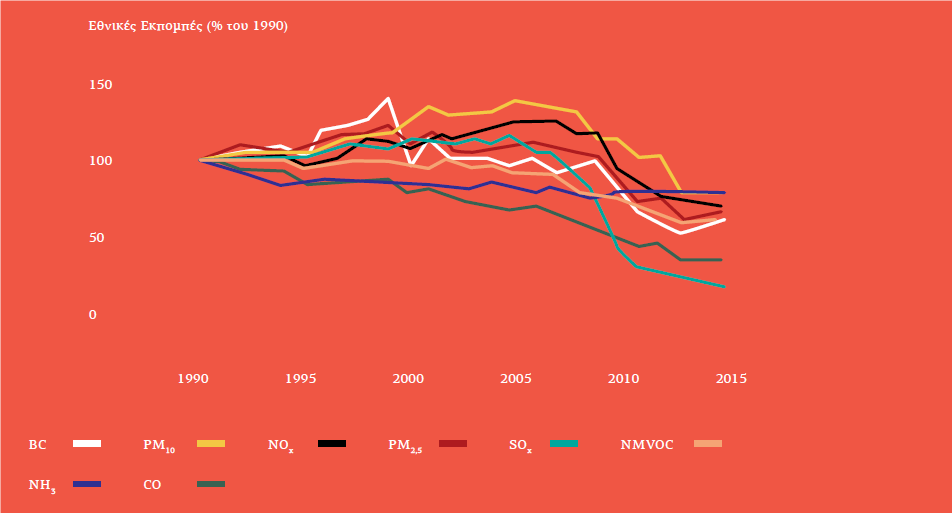
The above diagram below shows a timeline of the emissions of certain pollutants in Greece. Professor Nikos Michalopoulos explains to us how during the 5 years between 2005 and 2010 there was a downward trend in the emission of pollutants which becomes more and more prominent.
*BC: Black Carbon, PM10: Inhalable particles with a diameter of 10 micrometres or less, NOx: Nitrogen Oxides, PM2.5: Fine inhalable particles, with diameters of 2.5 micrometers of less SOx: Sulphur Oxides. A dramatic reduction can be see here since the lowering of fuel content of NMVOC: Non-methane volatile organic compounds (i.e. those that can be found in a gas), NH3: Ammonia.
Mainly associated with agriculture, i.e. the use of fertilizers (one of the sectors where there is stability), CO Carbon monoxide (combustion product, incomplete). As can be seen from the table above, dramatic changes can be observed with regard to the sulphur oxides, wherever it is connected with diesel and carbon monoxide. Otherwise, there is some improvement but not that significant. The reduction is more noticeable from 2005-2008, right at the beginning of the crisis.



Recycling: Prioritising the day after

Recycling was late to be established in the lives and consciousness of Greeks and especially of the citizens of Athens. In recent years however, slow but steady steps have been made in right direction. The actions taken by the Municipality of Athens, with the aim of promoting recycling and enhancing its equipment and vehicle fleet are also proceeding at the same pace, influenced recently by the effects of the pandemic.
"Recycling in Athens is not at a satisfactory level", admits the Deputy Mayor of Sanitation and Recycling of the Municipality of Athens, Nikos Avramidis and adds: "The public is of course more mature than in the past. What must now be done by every municipality is to let people know that the efforts they make at home or at their businesses do in fact make a difference. I believe that when the public is convinced of this, recycling rates will go up."
According to official data issued by the Municipality of Athens, there are currently a number of actions under way, such as the addition of new blue bins in the neighbourhoods of Athens, boosting the municipality's fleet of recycling vehicles as well as an advertising campaign to increase public awareness, which had been frozen, due to the pandemic.
"That was actually the biggest problem we had to deal with. At the moment we aren't able to speak to the public and that is the most important part. We need to remind people what recycling means, how it is done and the practical steps they need to take in their neighbourhoods, what should go into blue bins and what composting is", says Mr. Avramidis, referring to some of the actions that were postponed in the past year, such as school presentations, public events and providing households with multi-use bags for the collection of waste, i.e. "that blue bag we provide households with for throwing away plastic, glass, and metal packaging".
The "blue bin" scheme
Among the upcoming targets set by the Municipality of Athens, restarting the programme for the recycling of municipal packaging waste through the use of "blue bins", holds a prominent position. The city has 28 vehicles engaged exclusively in collecting waste from blue recycling bins which, since last December, amount to 4,246 and are expected to reach 5,000 by April.
"The most significant effort that was made last year was to restructure a network of blue bins in neighbourhoods because they were nowhere near sufficient. We are also expecting 27 new waste collection vehicles by the end of 2022. These are small and medium sized vehicles which are convenient in the parts of the city that are not accessible to larger ones", says the Deputy Mayor of Sanitation and Recycling.
Timeline of the "blue bin" in Athens:
10/2019 : 3.623
12/2020 : 4.246
04/2021 : 5.000
The composting process and scheme
Meanwhile, another of the Municipality targets for the current year is to expand the bio-waste collection programme to include "large producers". According to municipal data, the network numbers 110 collection points, including:
- 20 large hospitals (public and private), clinics and maternity hospitals
- 25 branch-stores of large supermarket chains
- 6 military barracks (including the Hellenic National Defence General Staff - Pentagon)
- Various other points such as large fruit and vegetable stores, restaurants and food and drink related businesses
- 12 large hotels
- 34 outdoor markets where bio-waste is collected. At 9 of those, waste is collected in brown bins located next to the producers' stalls.
"In addition to the blue bins, we will also be seeing more brown bins in the days to come. We have started with large producers because it is easier to collect larger quantities. We do have the equipment for all of the above", points out Mr. Avramidis who goes on to highlight that here too: "the difficulty lies in informing the public. When we say compost, we mean anything organic, our leftovers basically. This is a very sensitive product. If anything, even a pen cap falls into a brown composting bin the entire product is destroyed. It must be 100% clean. It must be organic. Citizens have to understand what to put into each bin. This is a different process, with a different brown bin. This waste goes neither in mixed nor in recycling bins. This presents somewhat of a challenge since citizens need to be informed".
Based on data issued by the Municipality of Athens 3,000 new, brown, bio-waste bins and 20 new vehicles with a bin disinfection system for bio-waste collection were purchased in 2020 and the plan is to expand the scheme to households by the end of 2022.
In fact, a programme for the management of waste generated by the content of blue bins started last February, with the objective of avoiding its disposal at a landfill. "We must recycle, so as to increase the percentage of composting and non-disposal, in an attempt to reduce the quantities that end up in landfills. Then we shall be able to speak of results".
Alignment with EU legislation
According to the Deputy Mayor of Sanitation and Recycling, 2021 "will be a year of recycling". In numbers this means that "we want to double the current recycling rate to 5%, and take the current 1% composting rate to 3%".
The need for Greece to align itself with European legislation seems imperative, however “applying this to Greek reality is going to take a lot of work":
"With regard to EU legislation, as of 01/01/2020 the new Famellos law has been in effect, which is a step in the right direction towards Greece doing things like the rest of Europe. If you pollute you pay. People who pollute less than others cannot be expected to pay the same. All Municipalities are obliged to bear the burden of the disposal fee which was 5 euro per ton in 2020, and in 2021 it becomes 15 euro per ton and reaches up to 35 euro. Considering that Athens generates approximately 320,000 tons of waste annually, the cost runs into the millions. The charge of course has the rationale of a pressure measure", concludes Mr. Avramidis.
♻️To EΚ ζητά μια κυκλική οικονομία ουδέτερη ως προς τον άνθρακα, βιώσιμη & χωρίς τοξικές ουσίες έως το 2050.
— EP_Hellas (@EP_Hellas) February 10, 2021
Στον δρόμο προς την επίτευξη του στόχου απαιτούνται δεσμευτικοί στόχοι όσον αφορά τη χρήση υλικών και το οικολογικό αποτύπωμα κατανάλωσης.
🔗https://t.co/ocNEIJey9L
⬇️ pic.twitter.com/OkhJrvWc6Q
The potential of a Circular Economy
In 2015, the European Commission presented a Circular Economy Action Plan, sharing its vision for a future where circular business models play a central part in member state economies, extending the life cycle of products, components and raw materials. In January 2020 the Commission upgraded the importance of the above plan, making it the central pillar of the EU's new growth plan, the European Green Deal, whose overarching aim is for Europe to become the first climate neutral continent by 2050.
In view of the challenges of the new era which we have already entered, Meletis Bibizas - PhD Candidate / Researcher in Circular Economy and Supply Chain Management at the University of Sheffield (UK) and member of the EU Horizon 2020 'ProCEedS' research programme, presents two circular economy examples that could be taken into consideration by our country, in addition to those already being implemented.

France: Legislation banning the disposal of food
In February 2016 following a massive consumer campaign, the French Senate made France the first country in the world that forbids supermarkets from throwing away or destroying unsold food products. Five years later, networks have been developed through which quantities of unsold food products are donated to charities and food banks so they may reach citizens who rely on such schemes for food due to financial difficulties.
Meanwhile, the establishment of tax incentives acts as a motive for food stores to participate in this initiative as actively as possible, since they can basically save up to 60% of the total value of the goods being donated. On a daily basis, over 2,700 supermarkets hand out 46,000 tons of food, which would otherwise end up in the rubbish, from 80 central distribution points. Efforts are now focused on intensifying in-store controls as well controls at key points in the distribution network with the ultimate goal of optimizing the shelf life and safety of donated food.
Italy: Production of bio-fuel from used cooking oil
Since 2017 the multinational Eni SpA, one of the seven global giants in the gas and oil sector, has signed a series of agreements with companies in the Italian market with the aim of the developing circular economy projects in the biofuel sector.
Focusing on the production of biodiesel from used cooking oil (UCO) the company instigated the initiative via a pilot programme for workers at its refineries. The company installed special containers for the collection of such oils at the workplace and provided each employee with special cans for transporting UCO from their homes, together with instructions for the proper recovery of this type of waste and information on the environmental benefits of the scheme.
In 2019, Eni SpA began a collaboration with the state consortium RenOils, aiming to develop a network for the collection of used cooking oil from Italian households. The agreement also included the development of a series of environmental awareness campaigns to inform the public about the benefits of producing biodiesel from used oils as an alternative to fossil fuels.
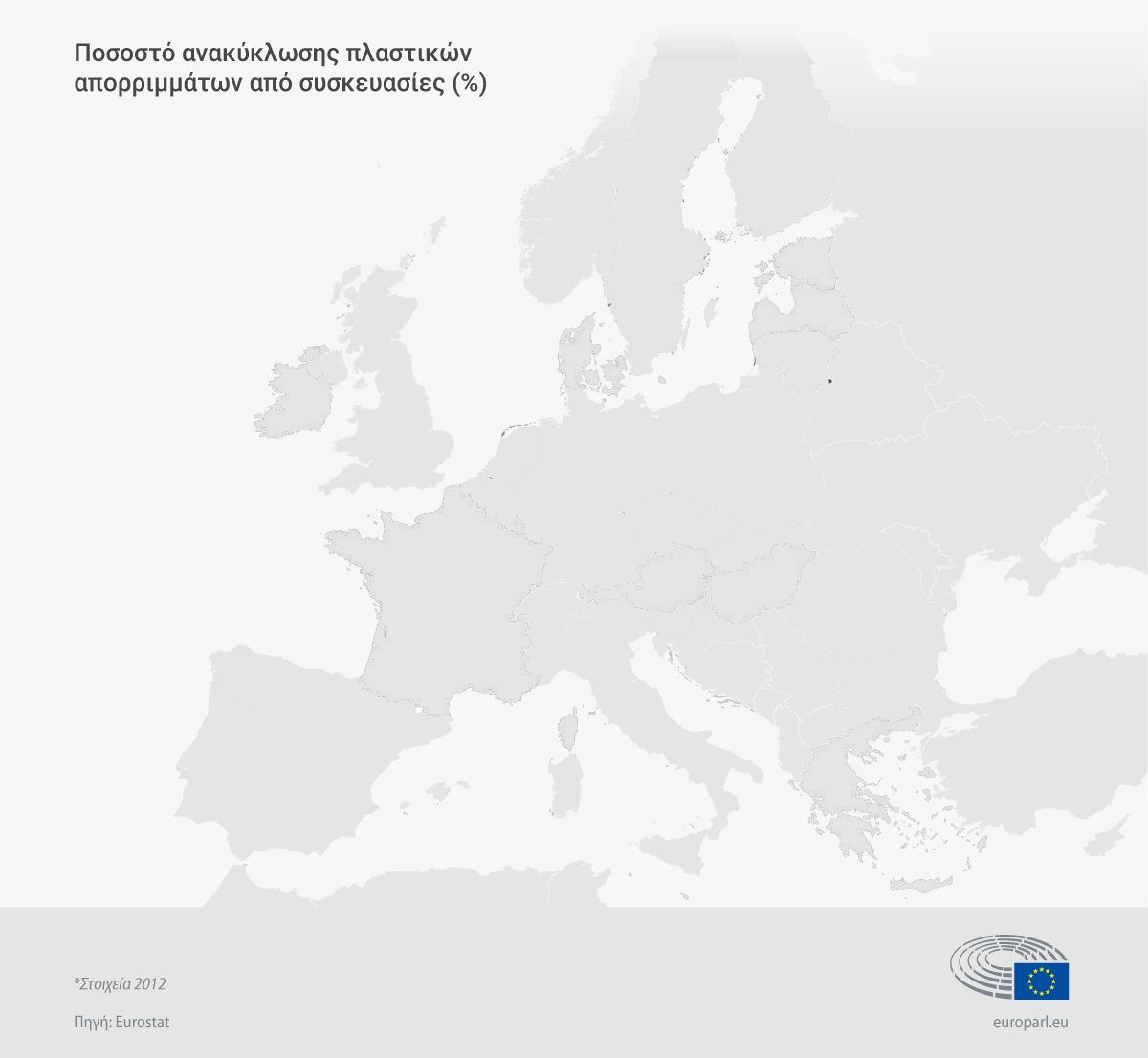
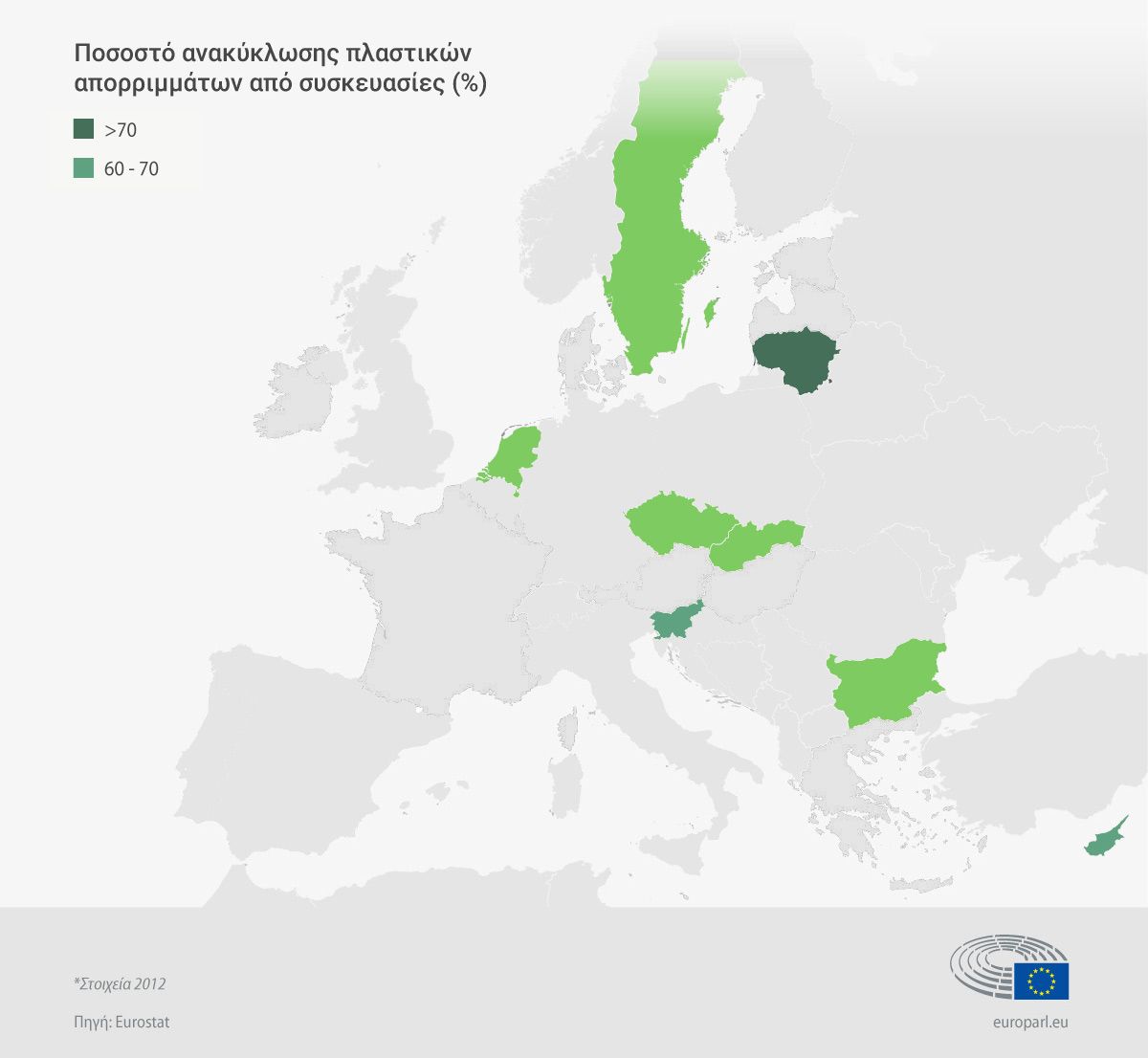
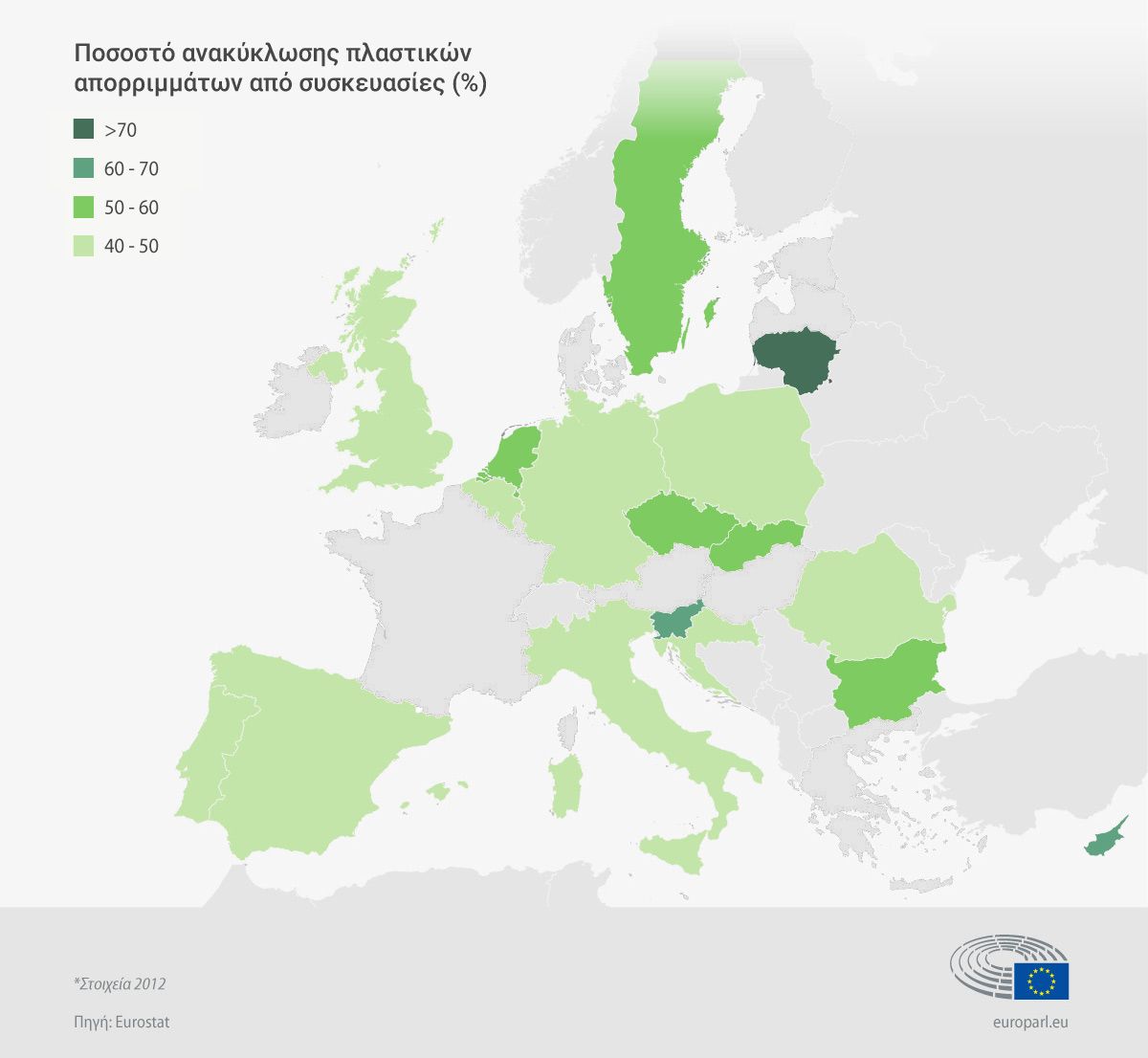
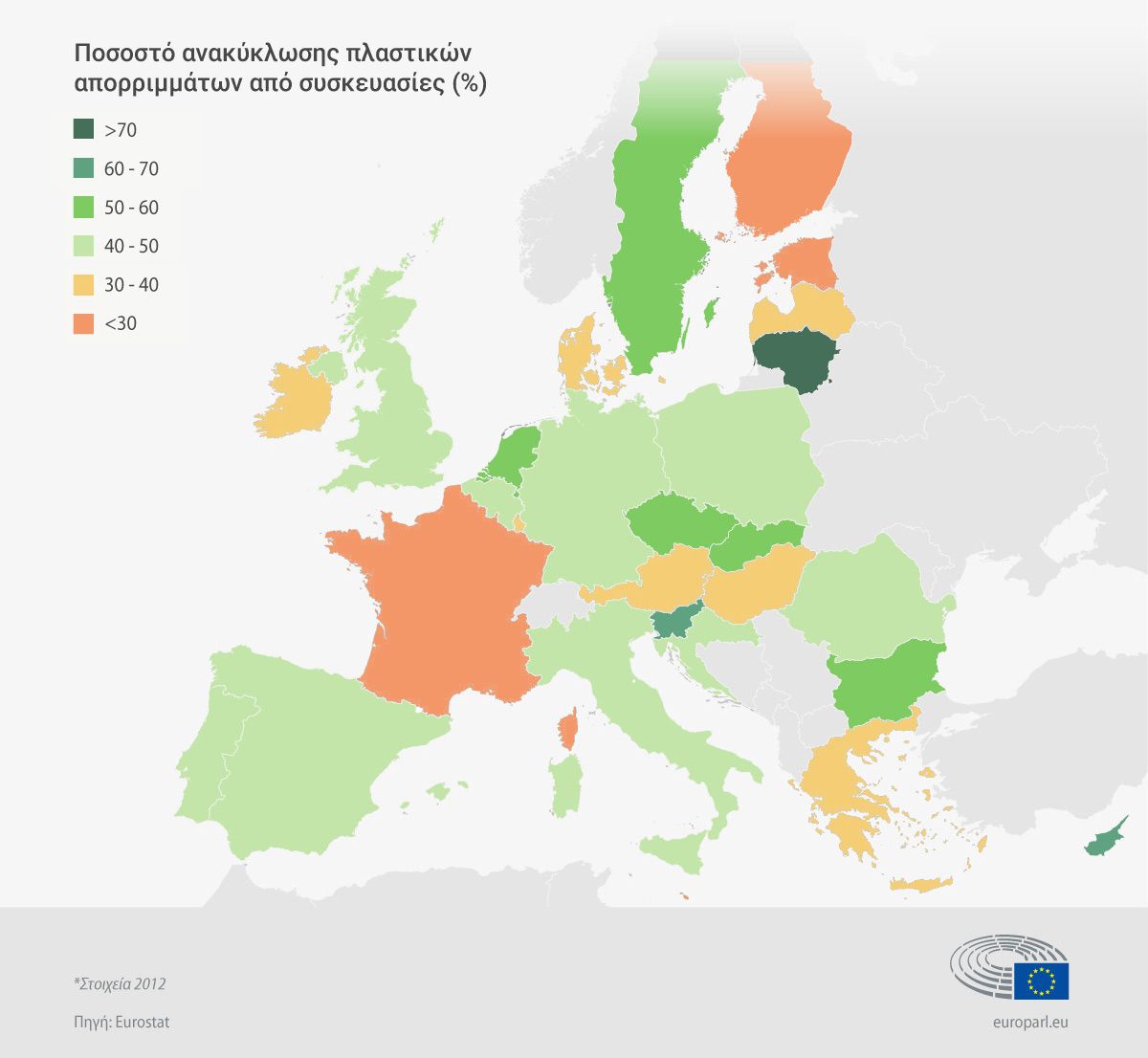
Personal data and consumers on the planet of 5G

It is clear that the EU Parliament is constantly and actively involved in developing and strengthening EU consumer protection legislation, while at the same time balancing the interests of markets and consumers. Consumer protection measures are included in the New Consumer Agenda for 2020-2025, as well as in the new Consumer Agreement, the European Green Deal and the Circular Economy Action Plan, among other initiatives.
European consumers also benefit from actions and tools aimed at strengthening various aspects of the EU internal market. These include a number of tools created under the initiative for a Single Digital Market and combine measures that focus on consumers, with market design measures.
In the emerging digital consumer world of Big Tech giants, one of the issues put forth is the protection of personal data. This basically means how personal data is safeguarded through EU action plans.
To analyse the challenges faced by the EU in view of the digital age, personal data but also of the issue of revenge porn, we give the floor to Valeria Iliadou and Chrysi Sakellari.
Valeria Iliadou is a graduate of Athens Law School and works as a legal advisor at the European Commission. She has an LLM in Public International Law from Leiden University and an Advanced LLM in Intellectual Property and ICT Law from KU Leuven University. She has worked as a legal advisor for private firms and European organisations in Athens, London and Brussels.
Chrysi Sakellari is employed as a legal counsel with Toyota in Brussels, specialising in Privacy, Data Protection, AI & Tech Law. She has an LLM in Intellectual Property and ICT Law from KU Leuven university and has previous work experience with NATO, the European Commission and with KPMG Brussels.
As they explain: "It is clear that today's reality is being shaped by ever-increasing challenges, with recent generations being called upon to deal with circumstances which in the past would have been laughed off as science fiction scenarios. As Mark Twain aptly noted, history doesn't repeat itself but it often rhymes. The rapid growth of information technology does not in any way rhyme with the past, since technology is advancing at a neck breaking pace. The moral and social challenges it triggers though, such as the protection of personal data and respect for privacy, are in a way perpetually occurring issues.
It is a fact that the abundance of opportunities which arise through technological development, in terms of collecting, using and processing personal data, intensifies the need to protect privacy, to ensure non-interference and to maintain the inviolability of the private environment of the individual. In an attempt to safeguard this fundamental right, in May 2018, the European Union introduced new protection rules by means of the infamous GDPR, pursuant to which a new status quo is established with regard to the management of citizens' personal data.
The right to be forgotten
The right to erasure (the right to be forgotten)
It has now become clear to Europe that existing safeguard policies are unable to keep up with the giddying pace of digital dissemination and processing of information. Foreseeing this immediate need for protection, the EU has introduced, through the GDPR, the Right to be Forgotten and the Right to Erasure of personal data, offering every European citizen the right to request the deletion of any information concerning him/her, from the results of search engines such as Google. This is supplemented by a ruling of the Court of Justice of the European Union (ECJ) whereby search engines have full responsibility for the lawful processing and protection of the data they manage and possess, thus taking a small - but important - step towards regaining control of personal information that enters the digital world.
The solution to revenge porn?
During the Covid-19 pandemic, which has led to the confinement of citizens in their homes, domestic violence has been on the rise and an increasing number of offenders use new technologies to exert a new, digital type of emotional blackmail. Revenge porn in particular - the sharing of private, sexual materials, either photos or videos, of another person without their consent and with the purpose of causing embarrassment or distress - has spread across Europe, with cases rising rapidly in Britain, France and Italy.
It has become an online trend which is reaching concerning levels even among minors. In Greece there were 340 sextortion cases in 2020, up by 24% during the pandemic. It is clearly an emerging form of crime, involving the aggressive invasion of an individual's private sphere and the painful violation of their dignity, which, due to its digital nature, could be dealt with in the context of personal data protection.
But can videos be considered personal data? Most people think this data involves simply the information recorded about a person, such as their name, age, race, professional status and so on. The GDPR comes to broaden the definition, by including in personal data any other information which, if put together, can lead to the identification of a specific person.
On a similar note, the European Data Protection Board has ruled that the recording of individuals who can be recognised, based on their appearance, constitutes processing of personal data, especially when the video becomes available to an unspecified number of individuals.
At an EU level there is no common legislation on revenge porn that is collectively enforced by member-states. The GDPR however does seem to offer certain guarantees for protecting the personal data of victims. More specifically, the right to be forgotten, could potentially bridge the gap, by halting the victim's connection to the material in question, when their name is entered into a search engine.
Similarly, the same tool gives victims the right to demand that the offending video be removed from the website responsible. If the request is not met, the victim can appeal to the local Data Protection Authority, which takes further legal action to vindicate the victim. In this way, an effort is made to contain the painful consequences of a type of psychological extortion that can have extreme consequences, as in the case of the 22-year-old student of the Aristotle University of Thessaloniki who died tragically in 2016 because of such criminal acts.
A Greek example of Revenge Porn
A typical example of the attempts made in Greece to deter such crimes, is the recent decision by the Supreme Court (505/2020), which ruled that the online posting of sexually explicit videos, made by the complainant's former partner, without her consent, constitutes a violation of the GDPR regarding the collection, use and publication of personal data and is punishable by imprisonment.
Similarly, the current political advisor of Denmark's Women's Council Emma Holten, whose personal, sexually explicit photos from her teenage years are still online via stolen files, is invoking the right to be forgotten, introduced via the GDPR. Holten remains optimistic as to the future conditions of digital politics, pointing out that there is a difference between being a victim in 2021 and being one in 2011, since the evolution of the socio-political status quo can now offer a broader range of options to injured parties.
The fight against revenge porn and increased public awareness of privacy protection, seem to be bearing fruit on a global scale. In fact, some organisations and websites are reviewing their platform policies, becoming allies in the seemingly unequal battle for privacy protection. A notably example is the recent announcement by a popular erotic content website, to desist from publishing videos on their platform without the express consent of the persons depicted.
Along similar lines, is the recent European Digital Services Act (DSA), which was established so as to ensure a safe and responsible online environment, by regulating the way in which technology companies manage their platforms. These regulations set specific transparency terms and contain harmonised measures on dealing with incidents of illegal online content, via certain monitoring bodies for the risk management of digital systems.
Although such developments are extremely positive, there is still a long way to go until such issues have been definitively resolved. The biggest challenge faced by society in this struggle is the fact that the current legal framework remains, unintentionally but constantly behind the rapid pace of technological advancement. The unrestricted activity of such platforms renders them decision regulators, allowing them, almost unhindered, to shatter rules and barriers. The attempt to impose conditions or offer incentives for compliance with the online ecosystem is necessary, but it is also time-consuming and without guaranteed results.
What is required in order to safeguard our privacy and integrity, are fast reflexes from both individual states and individual citizens. On the one hand, the rules, which can only produce the desired conditions for an Internet without illegal content if harmonised, must be adopted nationally. On the other hand, an individual moral restructuring that promotes responsibility and control, is required but also a consistent, unwavering attitude towards phenomena that violate human dignity. It seems that things are moving towards that direction, albeit belatedly ".
Welcoming 5G in the face of conspiracy theories
As we know, the EU did away with roaming charges in 2017. It no longer makes any difference whether one calls home from another European country or vice versa. In fact a call should not cost more than 19 cents per minute and 6 cents for an SMS. The rules also make it easier to track telephone bills or change providers.
At the same time, smartphone users benefit from better security, such as the mandatory end-to-end encryption of messaging services. As of 2020 mobile networks are becoming even faster with the implementation of high speed 5G. Not only do the new rules reduce costs and improve connectivity for telephony users, they also make Europe safer.
In view of the emerging new European world of 5G, it is only reasonable for people to have questions about its use and its technological specifications, about how prices are falling and how our lives are changing. Then again there are the inevitable conspiracy theories which can only cause amusement. Each conspiracy theory however must be pitted against logic.
To clarify all of the above, NEWS 24/7 spoke to Dr. Ioannis Tomkos, Professor of Optical Communications at the Department of Electrical and Computer Engineering of the University of Patras.
In his work, Mr. Tomkos focuses on the research topic of next generation networks (6G). His scientific work has appeared in over 650 papers published / presented in scientific journals / books and at international conferences / workshops. He has received numerous awards and more than 10,500 citations and is considered to be a top-ranking scientist both in Greece and internationally.
In recognition of his achievements, he was elected 2010 Fellow of the IET (Institute of Engineering and Technology), 2012 Fellow of the OSA (Optical Society of America) and 2018 Fellow of the Institute of Electrical and Electronic Engineers (IEEE).
Asked "why we are now talking about a true technological "revolution" when speaking of 5G", Mr. Tomkos answers: "Historically, it can be observed that every telecommunications generation that comes along every 10 years or so (starting in the 80s with 1G analogue networks and now with advanced 5G digital networks), has brought about huge changes in our daily lives and in the economy. Suffice it to recall the advent of mobile telephony in the ’90s, mobile internet access in the‘ 00s, and the advent of smart mobile devices (smartphones, laptops) in the ‘10s.
The use-cases that can be supported by the technological capabilities of 5G networks would have belonged to the realm of science fiction up until a few years ago. Now though, new studies coming out on a daily basis, experimental demonstrations but also commercially available services, are clear indicators of the prospects that are opening up. 5G will be a generation of telecommunications different from the others, where wireless networks will be combined with wired optical fibre networks, but also with data collection, processing and storage technologies (Sensors, Internet of Things, Artificial Intelligence, Cloud Computing, Cloud Centres etc.), to provide end users with new experiences and Business, State and Industry with a plethora of new capabilities.
The very structure of the Telecommunications industry will be transformed on the basis of new business models (as can be witnessed by the recent proliferation of start-ups, in traditional but also in new telecommunications IT-related fields) and in the context of what is now termed "ecosystem of 5G networks and applications”. The changes that will be brought about by 5G are unpredictable, but undoubtedly their impact will far exceed anything we have seen in the past ".
Will the development of 5G networks throughout the country help reduce prices for the average user?
Given that the introduction of these new networks is accompanied by strong competition between infrastructure, connectivity and service providers, there will be intense pressure to reduce costs. The more developed the infrastructure becomes, both in Greece and worldwide, the greater such reductions will become.
Obviously, any such cost reductions will eventually be reflected in the prices consumers must pay for services and equipment packages. Ever since December, there has been a rise in the sale of unlimited data packages in the Greek market, offering consumers the opportunity to truly experience 5G.
It is important to emphasize that the advent of 5G is accompanied by: a) new trends in business models, such as open data, open network infrastructure (e.g. open-RAN, open-Core), collaborations between market players e.g. for infrastructure sharing, but also b) new technologies that make the above trends possible, leading to eventual cost reduction, such as network slicing for example.
The new virtualized networks created in this way, intensify the competition even more, with the establishment of new players such as mobile virtual network operators - MVNOs, but also the providers of personalized network services (NetApps) offered over the common networks. These new market players will require the implementation of different operating models, but also commercial models, which have not been used so far (thus intensifying the revolution we mentioned in the answer to the first question). The end result for all of us consumers will be improved quality of services and lower prices!
The conspiracy theories revolving around 5G have already led to violence against engineers and vandalism of antennas. What is the source of all these theories? How should we deal with them as a state and as the European Union?
I would prefer to refrain from commenting on the conspiracy theories linking 5G to covid-19, since they lack any credibility whatsoever. I do however comprehend the concerns that have arisen regarding the possible impact of electromagnetic waves (radiation) which 5G networks use to transmit telecommunication signals. This is a serious debate that has been going on almost ever since the invention of wireless telecommunications and it is not going to be resolved any time soon.
The only cases in which the concerns were well-founded were in the case of the use of frequencies (relatively low-value) in applications with high power density levels that resulted in high absorption by human / animal tissue and causing mainly thermal effects (manifested as a burning sensation in the eyes due to their high water content). Although I have no medical knowledge, I would like to emphasize at the outset, that I believe that specialized organizations, such as the World Health Organization (WHO), the International Telecommunication Union (ITU), etc., are constantly investigating and reporting on the matter.
What is certain is that electromagnetic wave frequencies used by 5G systems are similar to those used by other applications, which have never caused any particular concern, such as television signal transmission systems.
Of course, 5G networks will utilize even higher frequencies (up to a visible frequency spectrum in the future) which do not pose a risk since they come under the category of non-ionizing radiation. In addition, it should be emphasized that the power levels for the emitted radiation used annually by the wireless communication systems are below the permissible limits (especially in our country, they are even lower than in other countries of the world and the EU).
The utilization of higher frequencies, means there will be a need for denser installation of antenna systems by the providers, which, however, will emit at even lower power levels since they will not need to be far from users' devices. So, the power density in 5G is to be lower than the values emitted so far in 2G / 3G / 4G networks. If there is to be a public reaction demanding further pressure on telecommunication operators and companies, it should be focused on calling for the use of even more antenna systems, emitting even lower power at even higher frequencies.
I would also be an advocate of a call for the future replacement of home Wi-Fi systems by corresponding Li-Fi (Light-Fidelity) that will be used simultaneously for the lighting of homes and offices and for connectivity needs. I should mention that countries such as France are already considering the replacement of Wi-Fi systems with Li-Fi systems in buildings such as schools and hospitals.
Is there any due cause for concern with regard the safety of personal data in relation to the development of 5G? How secure is our data and possibly what more could or should be done?
The European Union is known to pay close attention such issues. Just remember the rapid changes brought about by the implementation of GDPR. Similarly, the matter of 5G network security has been entrusted to the European Union Agency for Cybersecurity (ENISA), which is based in Greece, and is to develop all those legislative and regulatory tools for the 5G market that will ensure absolute security.
This "5G security toolbox" should be adopted and utilized optimally by all EU Member States and their respective authorities, but also by companies providing infrastructure and services so as to ensure that the vision of an EU Digital Single Market, which obviously relies heavily on both telecommunications networks and data, can in fact be realised. To sum up, I would like to note that, based on the standards it meets, 5G features inherently better security specifications than previous generations.
Off to Lady Gaga's concert in Milan
In addition to the excellent analysis offered above by Mr. Tomkos, we could not fail to mention the end of our exclusion from online purchases. As of December 2017, the EU has brought into effect rules that have put an end to the exclusion of access to goods and services due to the consumer's location.
Imagine you are in Belgium and you want to buy a pair of jeans from a Romanian website. In the past you would have to be redirected to the Belgian website since the cost of the jeans in Romania was lower, something that no longer happens. Now, European citizens can purchase the pair of jeans they want through cheaper websites from various countries with no obstacles.
Non-acceptance of credit cards from other European countries and inability to register on a website due to location are also a thing of the past. The sales of home appliances, online services, tickets to concerts or theme parks have all become pan-European. Basically, let's just book our tickets for Lady Gaga's next concert in Milan and we're off!
You can find information about all your consumer rightshere.
Photos: Shutterstock, Unsplash.

